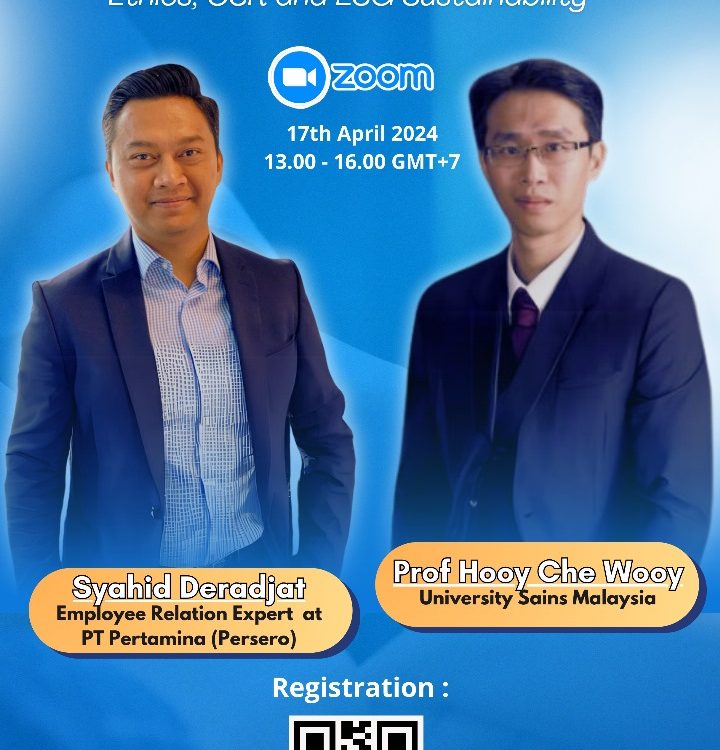
Master in Accounting Study Program FEB UNS Presents Guest Lecture on Ethics, CSR, and ESG Sustainability
The Master of Accounting (MAKSI) Study Program, Faculty of Economics and Business (FEB), Universitas Sebelas Maret (UNS) Surakarta, presented guest lecturers in the Guest Lecture on Ethics, CSR, and ESG Sustainability, Wednesday, April 17, 2024, virtually through Zoom Cloud Meeting.
The agenda, attended by MAKSI Study Program students, invited Prof. Hooy Che Wooi, School of Management, Universiti Sains Malaysia, and Syahid Deradjat, Employee Relations Expert, PT. Pertamina (Persero), as speaker.
Opening the virtual agenda, Dr. Wahyu Widarjo, Head of the MAKSI FEB UNS delivered a welcoming speech at the opening of the event as well as thanking the speakers who were willing to attend and the MAKSI FEB UNS team. “Thanks to Dr. Hooy and Mr. Sahid, who have agreed to become guest lecturers at the MAKSI FEB UNS, as well as to the participants for attending the agenda today,” said Dr. Wahyu.
The first speaker, Prof. Hooy, delivered material entitled “Business Sustainability from Ethics, CSR, and ESG Perspective,” which he said is still rarely discussed in the financial context.
“These three topics are often discussed and are relatively new topics in the financial sector. Today I will deliver material on how to distinguish the three concepts, and how they relate to business sustainability,” he explained.
In general, the definition of ethics refers to rules and behaviors accepted by a group of people, culture, or country, which are generally accepted even if not written. Groups that accept a similar ethical standard usually have similar characteristics, for example, a community group with the same language, or other characteristics. Therefore, an ethical standard that is considered good by one group could be considered wrong by another group. Based on this definition, business ethics has a narrower definition than the general definition of ethics, where it refers to ethical standards used by a group of people involved in similar business activities.
“Ethics are different from the law, when we violate ethics there is often no punishment. In this case, the result received by a business that violates ethics is in the form of ‘social isolation’ which is often carried out by boycotting products,” explained Prof. Hooy.
Still related to ethics, Prof. Hooy explained that the practice of ‘corporate social responsibility’ (CSR) is more inclined to ethics than legal law. The concept of CSR itself refers to the company’s obligations other than to the owner, where the company is expected to balance between profit and the welfare of the community. Meanwhile, the concept of ESG (environmental, social, and governance) which is often equated with CSR, has a wider scope than CSR.
“CSR only covers environmental and social aspects, while ESG also covers governance. Governance itself means a set of systems that enable companies to operate effectively. Both are instruments that can help the sustainability of the company and also the environment,” explained Prof. Hooy.
The material related to corporate sustainability presented by Prof. Hooy is followed by material from Syahid Deradjat, related to business sustainability practices applied by Pertamina.
“Pertamina focuses on three main areas in the practice of environmental social responsibility, including sustainable education, the environment, and the sustainable economy,” explained Syahid Deradjat. In addition, Pertamina has also mapped 10 key SDG sectors related to the company’s operations.
In addition to detailed material exposure, students get the opportunity to interact with the speaker through a question-and-answer process carried out at the end of each material.

